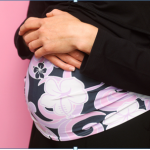(NOTE: This study has received a lot of press and coverage today but read on to gain new insights into important details of the study that may have influenced the results and interpretation)
The usefulness of folic acid supplication to reduce the risk of neural tube defects is well known. A new study from Norway published in JAMA, however, now suggests that autistic spectrum disorders (ASDs) may be another group of neurodevelopmental conditions whose risk can be reduced with folic acid, if taken at the right time. Since 1998, the Norwegian government has recommended that women planning on becoming pregnant take 400 micrograms of folic acid supplement prior to conception and through the first trimester of pregnancy.
Data for this study comes from the Mother and Child Cohort Study that examined over 85,000 children born between 2002 and 2008. The Children were between ages 3 and 10 at the time of the study. Folic acid use between 4 weeks prior to conception to 8 weeks into pregnancy was assessed through questionnaires mother competed at 18 and 22 weeks of pregnancy. Mothers were not asked about specific doses but were asked to provide the specific names of their supplements. The specific time period focused upon in this study was due to the authors’ hypothesis based on available information about nervous system development. Mothers were placed in the folic acid group if they had taken the supplement all or part of the interval. A diagnosis of autism was determined through questionnaires, referral information, and a patient registry, and half were assessed directly in a related study. The study divided autistic spectrum disorders into autistic disorder, Asperger syndrome, and PDD NOS, and the authors did not group them together for their analyses. Reduction in autism risk was calculated using odds ratios and logistic regressions that controlled for a few other variables such as maternal education, parity, and year of birth (all of which were found to be significant in the odds ratio calculations).
Nearly 72% (check) of mothers took folic acid supplements around their pregnancy. The overall rate of any autistic spectrum disorder was found to be 0.32%. The rate of specific autistic disorder among women who took folic acid was 0.1% and significant lower than the 0.2% found in offspring whose mothers did not take folic acid. The adjusted odds ratio for autistic disorder related to folic acid use was 0.6 representing a 40% reduction in risk. This significant reduction was not found for taking folic acid later in pregnancy or for Asperger syndrome and PDD-NOS. The authors also examined fish oil supplements and did not find a significant decrease in risk.
The authors concluded that folic acid supplementation before conception and during early pregnancy was significantly related to a lower risk of autistic disorder in children.
While promising, some potentially important difficulties with the study need to be mentioned. The overall rate of an autistic spectrum disorder was 0.3% which is well below approximate 1% rate often quoted these days. The authors noted that some of this difference may be due to mothers of more severely affected children not participating in the study. In addition, it is puzzling why the association with folic acid was not found for Asperger syndrome or PDD-NOS. The authors commented about a lack of power, yet they chose not to combine the ASD diagnoses which would have maximized their power (but perhaps given them a different overall conclusion?). It is also possible the folic acid is a proxy for other unmeasured variables that may have decreased autism risk. Some of these potential confounds were examined, however, and the lack of association with fish oil or for folic acid taken later in pregnancy lessen this concern somewhat. The way positive folic acid use was “counted” also leaves quite a bit of uncertainty regarding the dose and timing needed to produce maximum benefit. Despite these questions and limitations, the study offers some important data about a relatively simple step that can be taken that may reduce the rate of autism.
Reference:
Suren P, et al. Association Between Maternal Useof Folic Acid Supplements and Risk of Autism Spectrum Disorders in Children. JAMA 2013; 309:570-577.

